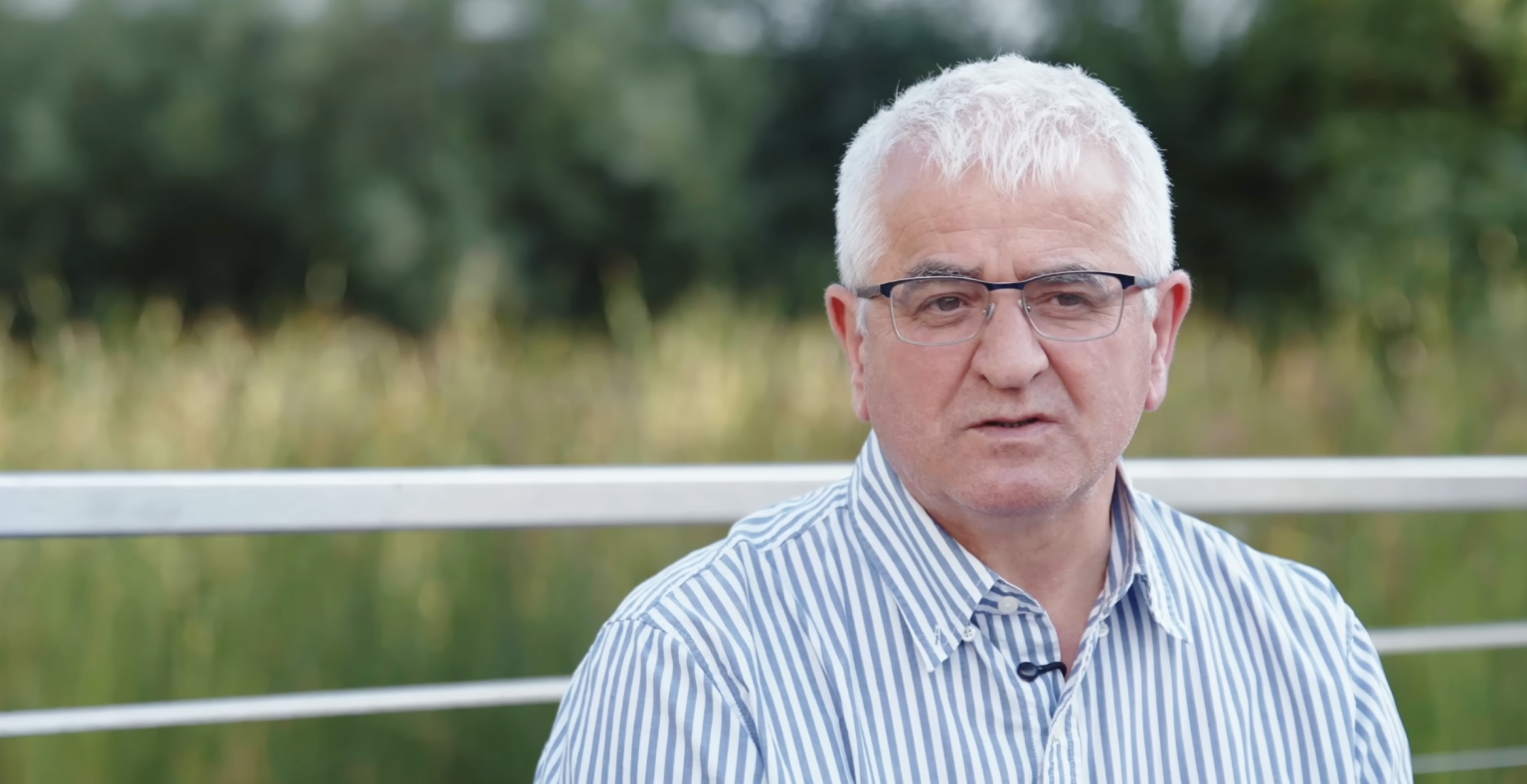Listen to the article
Russian disinformation campaigns targeting Ukrainians in Poland have deep historical roots that continue to influence public perception today, according to Miroslaw Skorka, who heads the Association of Ukrainians in Poland.
In a recent interview with Ukraïner, Skorka traced these propaganda efforts back to the post-World War II era, explaining that anti-Ukrainian narratives have been systematically deployed for decades.
“Russian narratives in Poland date back, I would say, to 1945. All the narratives that shaped the identity of the Polish socialist state were pro-Moscow and anti-Ukrainian,” Skorka stated.
During the Cold War, Soviet propaganda was structured around three alleged threats: American imperialism, Zionism, and what Moscow labeled “Ukrainian bourgeois nationalism.” This framework deliberately targeted Ukrainian identity and national aspirations while influencing both Polish communist and nationalist ideologies.
The propaganda strategy has evolved since the fall of communism, but its core focus remains unchanged. “With the emergence of an independent Ukraine, the wording changed, but the target remained the same — Ukrainians,” Skorka explained.
These disinformation campaigns have manifested in tangible ways across Poland. Skorka highlighted incidents of vandalism against Ukrainian graves and memorials, which Polish authorities initially dismissed as fabrications despite evidence that such actions were quickly amplified on Russian media channels.
“We saw this many times, and we talked about it ten years ago when Ukrainian graves in Poland began to be destroyed. Films documenting the destruction of these graves were immediately broadcast in the so-called ‘DNR’ and ‘LNR.’ Russian TV aired them, while Polish authorities considered it our invention,” he said.
The Russian-occupied territories in eastern Ukraine’s Donetsk and Luhansk regions served as distribution points for this propaganda, underscoring the coordinated nature of these influence operations.
Historical narratives remain a particularly contentious battleground. Russian propaganda consistently portrays Ukrainian national figures like Stepan Bandera as fascists, stoking tensions between Poles and Ukrainians by exploiting painful historical memories of the World War II era.
Social media has become the latest frontier for these disinformation efforts. Current Russian-backed narratives target the large Ukrainian refugee population in Poland, which grew substantially following Russia’s full-scale invasion in 2022.
“If you follow what’s happening on social media, there’s nothing new. Take, for example, the latest Russian propaganda narratives being actively spread in Poland: that Ukrainians are living off social benefits, then driving expensive cars, taking jobs, and so on,” Skorka observed.
These claims intentionally distort the economic reality. Contrary to the depiction of Ukrainians as economic burdens, Skorka emphasized that Ukrainian refugees and immigrants make substantial positive contributions to the Polish economy as entrepreneurs, workers, and consumers.
“Ukrainians bolster Poland’s economy by creating jobs as small business owners while contributing to the nation’s gross domestic product,” he noted, adding that most Ukrainians fled to Poland to escape war, not economic hardship.
The persistence of these narratives highlights the long-term nature of information warfare. Even as Poland has emerged as one of Ukraine’s strongest supporters on the international stage, providing military aid and hosting millions of refugees, Russian disinformation continues attempting to drive a wedge between the neighboring nations.
Experts warn that identifying and countering such propaganda remains crucial for maintaining Polish-Ukrainian solidarity, especially as the war in Ukraine continues into its third year with no immediate end in sight. The targeting of refugee populations with hostile narratives represents a deliberate strategy to undermine humanitarian support and foster social tensions within NATO countries bordering Russia.
Fact Checker
Verify the accuracy of this article using The Disinformation Commission analysis and real-time sources.




10 Comments
Interesting that the core targets of these propaganda campaigns – “American imperialism, Zionism, and Ukrainian bourgeois nationalism” – have remained largely unchanged over the decades. A sobering reminder of Russia’s consistent playbook.
The Soviet-era origins of these anti-Ukrainian propaganda tactics highlight how deeply entrenched they are. Kudos to Skorka for tracing this history and shedding light on Russia’s ongoing efforts to manipulate Polish public opinion.
It’s alarming to see how these narratives have persisted even after the fall of communism. Maintaining a strong democratic bulwark against foreign interference will be critical going forward.
This report serves as a sobering reminder of the need for continued cross-border cooperation and information-sharing to expose and combat Russia’s disinformation operations. Safeguarding democratic values should be a shared priority.
Well said. Only through a coordinated, multi-faceted approach can we hope to effectively counter these insidious and long-running propaganda campaigns targeting the region.
While the language may have evolved, the fundamental goal of undermining Ukrainian interests in Poland appears to have remained a constant for Russia. Vigilance and a commitment to facts will be essential to push back against these malign efforts.
This report underscores the need for robust media literacy initiatives in Poland to help citizens identify and resist Russian disinformation tactics. Strengthening democratic resilience should be a top priority.
Absolutely. Equipping the public with the tools to critically evaluate information sources and narratives is key to countering the corrosive effects of long-running propaganda campaigns.
This is a concerning report on Russia’s long-standing efforts to sow discord and undermine Ukrainian interests in Poland through propaganda. It’s crucial that we remain vigilant against such malign influence campaigns.
You’re right, the historical roots of these Russian narratives make them particularly insidious. Sustained fact-based efforts to counter disinformation will be key to protecting Polish-Ukrainian relations.